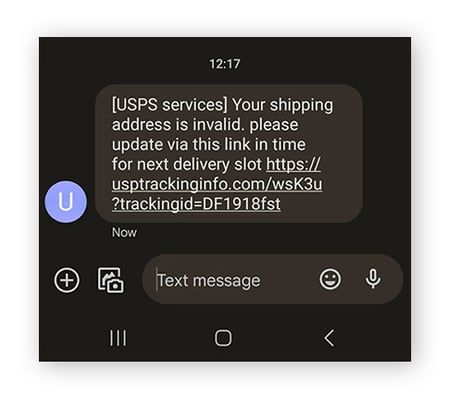October is Cybersecurity Awareness Month. That means to be aware of all the nasty, and expensive, things that can happen in cyberspace. African-Americans and Latinos are twice as likely to lose money to a scam than whites. Why? Perhaps we lack the proper education to spot a scam. We need to change that
According to Consumer Reports, “…14 percent of Blacks in the U.S. and 13 percent of Latinos have lost money to a cyberattack or a digital scam, according to a nationally representative CR survey of 2,042 U.S. adults conducted in April 2024 (PDF). By contrast, only 6 percent of whites reported losing money.” And if that is not bad enough research also indicates that Black and Latino are less like to report being scammed. We need to change that too.
Another scam you’re likely to see
Package delivery phishing scams are another of the most likely scams you will encounter. You probably get about one or two scam delivery messages in your text or email per week, They usually start the same way; “…we have very valuable package we need to deliver and need to verify your address or other information.” that is how this scam begins. Its commonly known as a phishing attack. The cyber criminals are looking for specific information about you.
These text and emails message include a “tracking link” that you are urged to click in order to update your delivery or payment preferences. The crooks are looking for financial information such as bank of credit card data.

You might also get a voicemail message with a call-back number, or a “missed delivery” tag on your door with a number to call.
These type of messages and emails usually come in fast and furious during the holiday season.
Phishing scams can work in different ways and this one s no different. Some links may open a website that prompts you to enter personal information. These websites are usually an exact replica of UPS or FedEx built specifically to fool you. So if you receive suspicious email, text or phone messages, go to the delivery carrier’s website directly or use the retailer’s tracking tools to verify the sender’s identity and avoid these scams.
Other links may install malware on your phone or computer that can secretly steal personal information. And that phone number you call maybe a direct line to a scam operator. They will ask you to verify your account information or the credit card number you used for a purchase. Other scam calls and texts may claim you need to pay a customs fee or tax before the delivery can be made. So here is the first clue; did you actually order something? Were you expecting it and if so from who? The best advice I can give you is know what you’re dealing with. Anytime someone asks you for money you should be the one asking the questions; of them and of yourself.
Here are few other indicators that text or email is a scam;
- Unexpected requests for money in return for delivery of a package, often with a sense of urgency.
- Requests for personal and/or financial information.
- Links to misspelled or slightly altered website addresses, such as “fedx.com” or “fed-ex.com.”
- Spelling and grammatical errors or excessive use of capitalization and exclamation points.(These are less likely with the introduction of AI)
- Certificate errors or lack of online security protocols for sensitive activities.
An interesting twist on this package scam
Did you get a package delivery you did not order nor were expecting? This known as the “brushing scam.” Its not a real danger to you because the sender is simply using your address to create a tracking number and that allows them to claim a sale and to write review of the product. That’s why people receive useless or poor quality products delivered to their door. People have reported receiving lotion and cheap cosmetics, cat toys and other useless items. Creating a fake review of the product is the real crime here. People shopping online often make purchases based on what they believe are legitimate customer reviews. These scam victims have to fight to get their money back when they receive inferior or simply sham products.
For more information visit
- FedEx common warning signs of mail, text or online scams.
- U.S. Postal Service Alerts
- UPS provides examples of these types of fraudulent communications on its fraud alert webpage.
Now you know.
